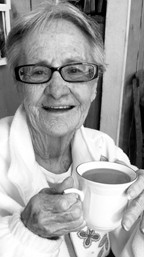After the Fact: Watch your language!

English, particularly the American version of English, has to be the most difficult of all languages to learn (though the melody of Asian languages would be impossible for folks like my dad who couldn’t tell a bass from a violin). There are rules for spelling, rules for how you put sentences together, rules that break the rules and everything changes after “c” or in February.
Add to that the words that are dropped from the dictionary every year and the words that are added and the words that aren’t words and everyone but me seems to know what they mean. LOL. LMFAO. AOS. Now that I no longer need it, I know what BYOB means. And it’s spelled the same way on every invitation, right next to RSVP.
I took a bunch of journalism classes from Earl Dapp who was, at one time, a news reporter himself. We went over the “who, what, when, where, why and sometimes how” rules for reporting. He also taught us the ethics of writing for a newspaper (this was when TV was still in early days and we got only three very snowy channels from Albuquerque). Any story we turned in had to have no fewer than two corroborating sources. And no “Deep Throat” cloak-and-dagger stuff.
Being an experienced reporter (one article published when I was about 6 or 7), I was totally unprepared for rejection! That Mr. Dapp expected me to re-write stories, some more than once, was entirely demoralizing. I didn’t aspire to winning a Pulitzer prize with stories published in the South Coloradoan, but thought my budding career would lead me to nothing less than the New York Times. Well, maybe The Denver Post since the prospect of life in New York scared me spitless. Some years later, I was offered a job with the Post, writing for the weekly “magazine” section they used to put out but I had to reply with regrets. And ohboy, I regretted it even more later.
Patience just got her first quarter “report card.” She got an “A+” in writing. I don’t know how her teacher arrived at that grade because, from my perspective, only a cryptologist could read anything she’s written since the beginning of the year. We haven’t yet seen the “tablets” that the school provides for these students so maybe she performs better on a keyboard than with a pencil. At this rate, she’s not going to be really popular with the “reviewing committee” (if there is one) at the Sophia writing circle in Alamosa. But that’s okay: I get the impression that they wouldn’t be much interested in my writings, either.
Our memoir-writing class at the Alamosa Senior Center has kind of dwindled away since our trusty leader, Vinaya Wall, decided to take an extended vacation with Jim Gilmore while their house is reconstructed after a fire. Unlike the Sophias, our group was strictly for laughs and we could probably stir up interest in doing it without a teacher if Lynette Cotton can find a time and space for us. The Center has become a really busy place but there’s still free coffee if you get there early enough.
In my e-mail “group,” I’m known as one of the “wordsmiths.” I think that’s a polite way of saying I talk too much and use words that are too big and go off on tangents that nobody can follow. My friend, Dimas, refers to it as “palabras del Domingo.” Which I think translates, more or less, to “keep it simple, stupid.” Spanish has such an elegant way of expressing the most direct criticism. I love the “dichos” he shares with me occasionally. Those are sayings that have come down through the family, usually, that have a very direct and mostly witty way of teaching a lesson in very few words. I think Patience has a soul that speaks Spanish with a tongue that tries to say it all in English.
That same e-mail bunch has more than a couple who said they also didn’t understand the “text messag-ese” but one with better skills (or maybe just grandkids who updated his reading) let us in on the secret: look everything up on “Google.” That is the internet equivalent of the Encyclopedia Britannica. With a Webster’s Dictionary thrown in. It even recognizes some words in Spanish, French or Sanskrit and may be a suitable source for help with those “put it together yourself” pieces of furniture they sell at WalMart.



